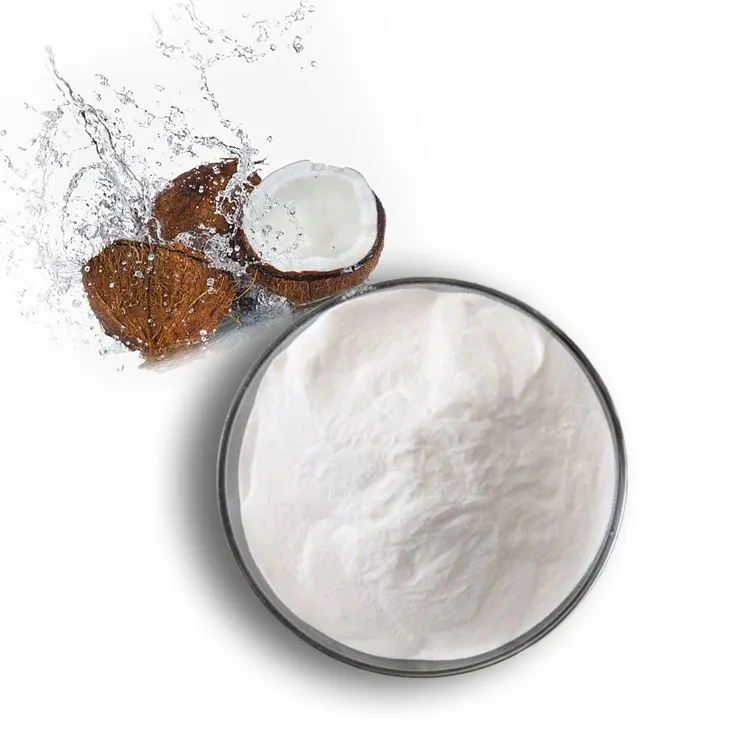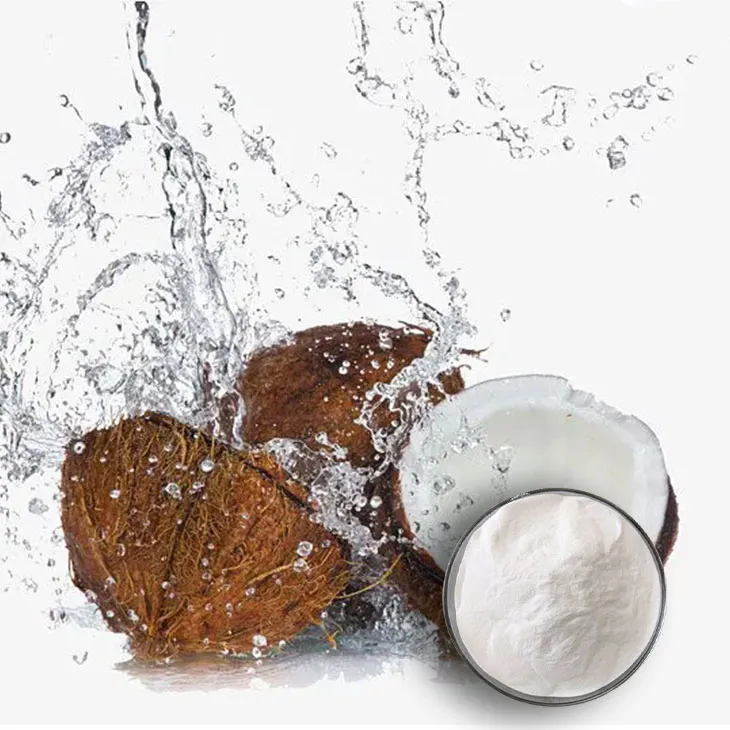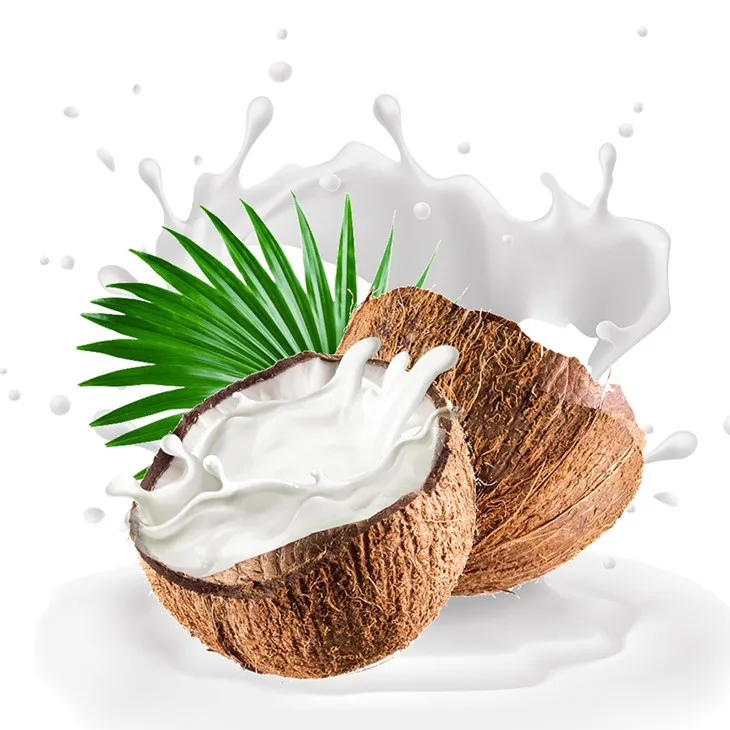- 0086-571-85302990
- sales@greenskybio.com
China Coconut Water Powder Factory.
2024-11-30

Introduction
In recent years, China has seen a remarkable growth in the coconut milk powder factory industry. This sector has become an important part of the food processing landscape in the country. Coconut milk powder, with its unique flavor and rich nutritional value, has gained increasing popularity both domestically and internationally.

Source of Coconuts
Coconuts are the primary raw material for coconut milk powder production. Chinese factories obtain coconuts through two main channels:
Domestic Sourcing
China has tropical regions where coconuts are grown. These domestic coconuts are a valuable source for the factories. For example, in Hainan province, coconuts are cultivated on a large scale. The local coconuts are known for their good quality, which is beneficial for the production of high - quality coconut milk powder.
Import
In addition to domestic sources, imports also play a significant role. Many factories import coconuts from other tropical countries. This allows them to access a wider variety of coconuts and ensure a stable supply. Countries like Thailand and the Philippines are major exporters of coconuts to China.

Production Process
The production process of coconut milk powder in Chinese factories is a complex yet highly technological one.
Extraction
The first step is extraction. Coconuts are first husked and cracked open to access the coconut meat and water inside. Advanced extraction techniques are used to obtain the pure coconut milk. This involves mechanical pressing or centrifugal separation methods. Mechanical pressing gently squeezes out the milk from the coconut meat, while centrifugal separation uses the principle of different densities to separate the milk from the solid components.
Purification
After extraction, purification is crucial. The extracted coconut milk may contain impurities such as small pieces of coconut meat or fibers. Filtration and centrifugation techniques are employed again to remove these impurities. This results in a clear and pure coconut milk, which is the basis for high - quality coconut milk powder.
Transformation into Powder
The final step in the production process is transforming the coconut milk into powder form. This is typically done through spray - drying or freeze - drying methods.
Spray - Drying
Spray - drying is a commonly used method. The purified coconut milk is sprayed into a hot air chamber. As the hot air evaporates the water in the milk, the milk is transformed into fine powder particles. This method is efficient and can produce large quantities of coconut milk powder in a relatively short time.
Freeze - Drying
Freeze - drying is another option. In this process, the coconut milk is first frozen and then placed in a vacuum chamber. The frozen water in the milk sublimes (changes directly from solid to gas) under the low - pressure conditions in the vacuum chamber, leaving behind the dry coconut milk powder. Freeze - drying is known for better preservation of the nutritional value of the product, but it is more costly and time - consuming compared to spray - drying.

Nutritional Preservation
One of the key advantages of the production process used in Chinese coconut milk powder factories is the preservation of the rich nutrients present in coconuts.
Vitamins
Coconuts are a good source of vitamins such as vitamin C, vitamin E, and B - group vitamins. Through the advanced production process, these vitamins are largely retained in the coconut milk powder. Vitamin C, for example, is important for the immune system, and its preservation in the powder ensures that consumers can benefit from this nutrient when consuming products made with coconut milk powder.
Minerals
Minerals like potassium, magnesium, and calcium are also present in coconuts. The production process is designed in such a way that these minerals are not lost during the transformation of coconut milk into powder. Potassium, for instance, is essential for maintaining proper heart function, and its presence in the coconut milk powder adds to the nutritional value of the product.
Healthy Fats
Coconuts are rich in healthy fats, particularly medium - chain triglycerides (MCTs). These MCTs are beneficial for health as they are easily digested and can provide a quick source of energy. The production process in the factories ensures that these healthy fats are preserved in the coconut milk powder, making it a nutritious addition to various food products.
Extended Shelf - Life
Another important aspect of converting coconut milk into powder form is the extension of its shelf - life.
In its liquid form, coconut milk has a relatively short shelf - life due to its high water content and susceptibility to spoilage by microorganisms. However, when it is transformed into powder, the removal of water significantly reduces the chances of microbial growth.
This extended shelf - life allows coconut milk powder to be stored for longer periods without the need for refrigeration in many cases. It also makes it more convenient for transportation and distribution, both domestically and internationally.
Market Applications
Coconut milk powder has a wide range of applications in the market, making it a versatile ingredient in various industries.
Beverage Industry
In the beverage industry, coconut milk powder is a popular ingredient.
- It is used to make coconut - flavored drinks. These can range from simple coconut milk - based beverages to more complex mixed drinks. For example, it can be combined with coffee to create a delicious coconut - flavored coffee drink.
- Coconut milk powder is also added to smoothies and shakes. It adds a rich, creamy texture and a distinct coconut flavor, making these drinks more appealing to consumers.
Confectionery and Baking Industries
The confectionery and baking industries also make extensive use of coconut milk powder.
- In confectionery, it can be used in the production of candies, chocolates, and other sweet treats. The coconut flavor adds a unique taste to these products, and the powder can also help in achieving the desired texture.
- In baking, coconut milk powder can be used in cakes, cookies, and pastries. It can replace liquid coconut milk in some recipes, providing a more convenient option for bakers. The powder also contributes to the moistness and flavor of the baked goods.
New Opportunities and Challenges
With the increasing global demand for healthy and natural food products, Chinese coconut milk powder factories are facing both new opportunities and challenges.
Quality Control
Quality control is of utmost importance. As consumers become more health - conscious, they demand high - quality products.
- Factories need to ensure that the coconuts used are of the highest quality, free from contaminants such as pesticides and heavy metals.
- The production process must be strictly monitored to maintain consistent product quality. This includes regular testing of the coconut milk powder for nutritional content, microbiological safety, and sensory properties such as flavor and texture.
International Market Expansion
There is a significant opportunity for Chinese coconut milk powder factories to expand into the international market.
- However, they face competition from other coconut - producing countries. To succeed in the international market, Chinese factories need to differentiate their products through factors such as superior quality, unique packaging, and effective marketing strategies.
- They also need to comply with international food safety and quality standards. This may involve obtaining relevant certifications such as ISO 22000 for food safety management.
Environmental Protection
The production of coconut milk powder also has an impact on the environment, and factories need to address environmental protection challenges.
- Coconuts are sourced from coconut plantations. Sustainable farming practices need to be promoted to ensure the long - term availability of coconuts. This includes measures such as reducing the use of chemical fertilizers and pesticides, and implementing water - conservation techniques.
- In the production process, waste management is crucial. For example, the by - products from coconut processing, such as coconut husks and shells, can be recycled or used for other purposes such as bio - energy production.
FAQ:
What are the main sources of coconuts for China's coconut milk powder factories?
China's coconut milk powder factories source coconuts mainly from tropical regions within the country or through imports.
How is coconut milk transformed into powder form in these factories?
Advanced technologies are employed in these factories to extract, purify and transform coconut milk into powder form. This process helps to preserve the rich nutrients of coconuts and extend the product's shelf - life.
What are the applications of coconut milk powder in the market?
Coconut milk powder has a wide range of applications. It is popular in the beverage industry for making various coconut - flavored drinks. It is also used in the confectionery and baking industries to add unique flavors to products.
What opportunities do Chinese coconut milk powder factories face?
With the increasing global demand for healthy and natural food products, Chinese coconut milk powder factories face new opportunities in terms of international market expansion. They can also benefit from the growing trend towards healthy eating.
What challenges do Chinese coconut milk powder factories face?
Chinese coconut milk powder factories face challenges in terms of quality control, international market expansion and environmental protection. Meeting international quality standards, competing in the global market and reducing environmental impact are all areas that require attention.
Related literature
- Coconut Milk Powder Production and Quality Control"
- "The Market Potential of Coconut Milk Powder in the Global Food Industry"
- "Technological Innovations in Coconut Milk Powder Manufacturing"
- ▶ Hesperidin
- ▶ citrus bioflavonoids
- ▶ plant extract
- ▶ lycopene
- ▶ Diosmin
- ▶ Grape seed extract
- ▶ Sea buckthorn Juice Powder
- ▶ Beetroot powder
- ▶ Hops Extract
- ▶ Artichoke Extract
- ▶ Reishi mushroom extract
- ▶ Astaxanthin
- ▶ Green Tea Extract
- ▶ Curcumin Extract
- ▶ Horse Chestnut Extract
- ▶ Other Problems
- ▶ Boswellia Serrata Extract
- ▶ Resveratrol Extract
- ▶ Marigold Extract
- ▶ Grape Leaf Extract
- ▶ blog3
- ▶ blog4
- ▶ blog5
-
The best lemon juice powder in nature.
2024-11-30
-
Organic Vitamin K2 Powder Suppliers
2024-11-30
-
Bulk purchase of L - tyrosine.
2024-11-30
-
Vitamin K2 Manufacturers
2024-11-30
-
100% Pure Natural Rutin.
2024-11-30
-
Chinese Citrus Bioflavonoid Suppliers.
2024-11-30
-
Bilberry Extract
2024-11-30
-
Diosmin
2024-11-30
-
Rosemary extract
2024-11-30
-
Motherwort Extract
2024-11-30
-
Phyllanthus Emblica Extract
2024-11-30
-
Acerola Juice Powder
2024-11-30
-
Sugarcane Extract
2024-11-30
-
Artichoke Extract
2024-11-30
-
Peppermint Oil
2024-11-30
-
Gynostemma pentaphyllum extract
2024-11-30





















